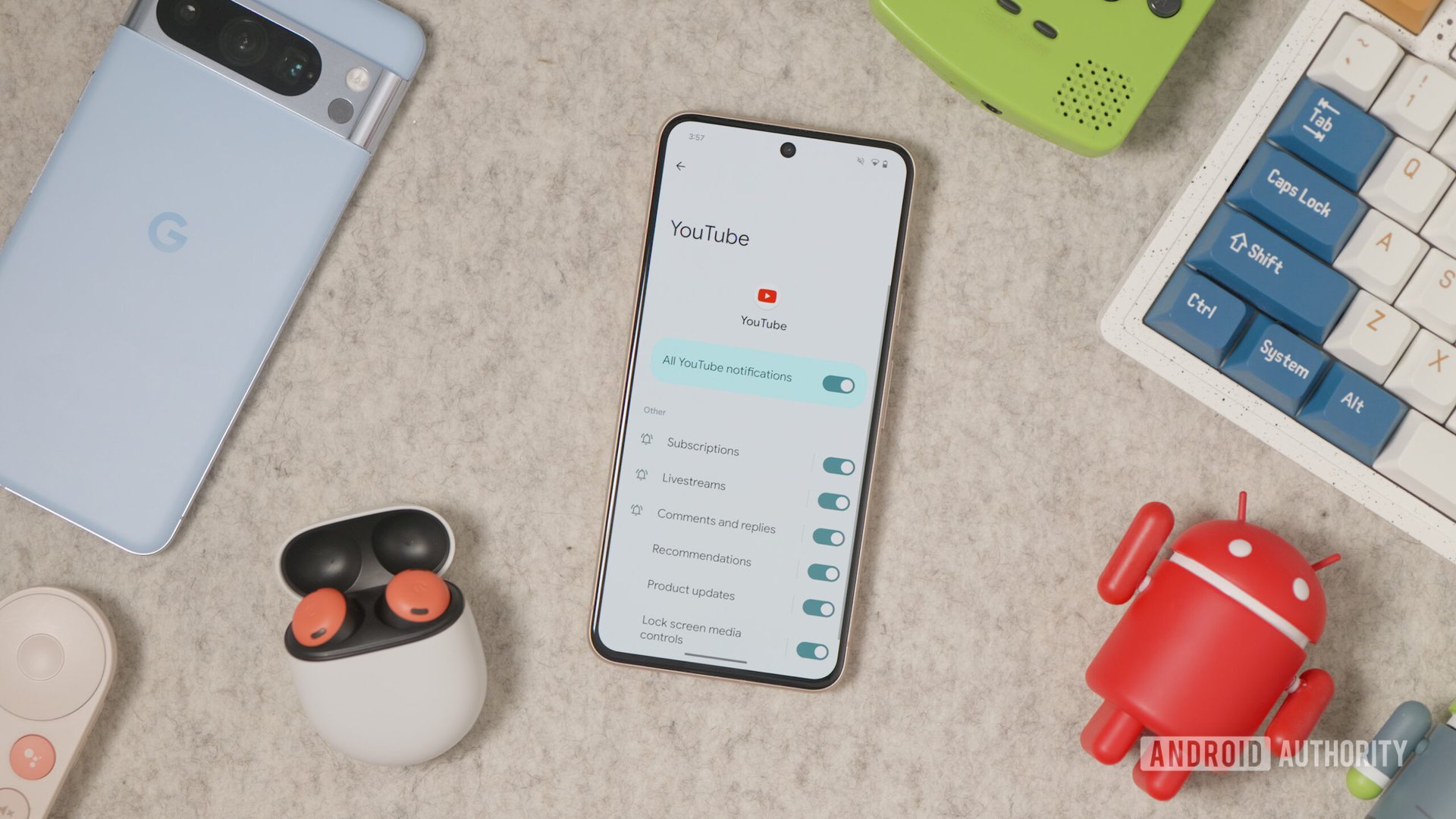Damien Wilde / Android Authority
TL;DR
- Google is working on a significant revamp of Android’s notification and Quick Settings panels for Android 16.
- The new design for both panels doesn’t take up the entire screen, which is nice.
- However, accessing the Quick Settings panel now requires swiping down with two fingers, which could be controversial.
Google just released the source code of Android 15 the other day, giving developers the opportunity to peek behind the curtains to see how all the new platform features work. Not every feature that Google worked on this past year was completed in time for Android 15’s release, which means we won’t see those changes until one of the upcoming quarterly platform releases or next year’s Android 16 update at the earliest. One of those changes is a total redesign of Android’s notification and Quick Settings panels.
The current design for Android’s notification and Quick Settings panels debuted in 2021’s Android 12 update, which is when Google introduced its Material You design language. In the current layout, the notification and Quick Settings panels are unified. Pulling down the status bar once shows the first four Quick Settings tiles as well as the entire notifications panel. Pulling it down again shows the entire Quick Settings panel plus a few notifications. This is how Android — at least the stock version of it as seen in AOSP — has handled notifications and Quick Settings for years now.
However, that’s not how many forks of Android handle these two panels. HyperOS, for instance, has separate panels for notifications and Quick Settings, which Xiaomi says an overwhelming majority of its users prefer. Separating the notifications and Quick Settings panels allows the former to show more notifications and the latter to show more tiles and buttons, but it’s not a design choice that everyone appreciates, which is why rumors that Samsung and OPPO are going to copy it sparked a lot of online pushback. Well, it seems Samsung and OPPO aren’t the only ones looking to separate the notification and Quick Settings panels, as Google is testing a new dual shade design for Android 16.
While tinkering with the latest Android 15 QPR beta, I managed to activate a new version of the notification and Quick Settings panels that I believe is intended for the Android 16 release. Pulling down the status bar once still brings down the notifications panel like before, but the panel now takes up about a quarter of the screen, rather than the entire thing. While you can’t see any Quick Settings tiles anymore in the new notifications dropdown, you can see the app that’s underneath the panel.
Pulling down the status bar a second time no longer brings down the Quick Settings panel. Instead, the Quick Settings panel is accessed by pulling down the status bar with two fingers. This is the change that I expect will be the most controversial, as it requires you to put more effort into accessing your Quick Settings tiles.
After pulling the Quick Settings panel down, you can swipe left or right between pages to see all your tiles. The brightness bar still appears at the top, but now has a text label and shows the brightness level as you adjust it, similar to the new volume sliders in Android 15. Most Quick Settings tiles have been made smaller so more of them can fit on one page, which is a welcome change.
Here’s a video that demonstrates the new notification and Quick Settings panels that I believe Google is working on for Android 16:
As you can see, this design overhaul is still quite unfinished. Many things are missing, like the user switcher, power menu, foreground service task manager, and icons for many of the tiles. Furthermore, the panels don’t handle light mode very well since the white text is impossible to see. The current design doesn’t even support light mode anyways, so adding light mode support would be a welcome change.
One other thing you might have noticed in these screenshots is the red banner in the bottom right corner that says flexi🥛. Flexiglass is the internal codename for the rearchitecting that Google is doing to SystemUI to make it more stable; the company’s applying the principle of separation of concerns to turn each main component of SystemUI into their own standalone experiences called “scenes.”
I don’t know whether Google plans to move forward with this particular design, but it’s evident it’s working on overhauling the notification and Quick Settings panel in a big way. I’m really hoping it ultimately doesn’t make us use two fingers for pulling down the Quick Settings panel, though, because that would be annoying.

